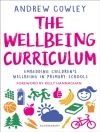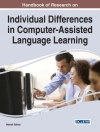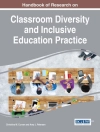Selling Out Education argues that basing education policy on qualifications and learning outcomes—dramatized by the phenomenal expansion of qualifications frameworks—is misguided. Qualifications frameworks are intended to make education more responsive to the needs of economies and societies by improving how qualifications and credentials are used in labour markets. But using learning outcomes as the starting point of education programmes neglects the core purpose of education: giving people access to bodies of knowledge they would not otherwise have. Furthermore, instead of creating demand for skilled workers through industrial and economic policy, qualifications frameworks are premised on the flawed idea that a supply of skilled workers leads to industrial and economic development. And skilled workers are to be supplied not by encouraging governments to focus attention on creating, improving, and supporting education institutions, but by suggesting that governments take a quality-assurance role. As a result, in poor countries where provision is weak to start with, qualifications have been created and institutions established to monitor providers without increasing or improving education provision. The weaknesses of many current policy approaches make clear, Allais argues, that education is inherently a collective good, and that the acquisition of bodies of knowledge provide the basis for its integrity and intelligibility.
Tabela de Conteúdo
List of Figure and Boxes; Acknowledgements; Introduction: First as Farce, Then as Tragedy….; A Note on Terminology; 1. Qualifications: Culture, Currency, Commodity; 2. Plus La Meme Chose: The Early History of Learning Outcomes and Learner Centredness; 3. Something New, Something Old: The Rise of Neoliberalism and the First Institutionalization of Outcomes-Based Qualifications; 4. Something Borrowed, Something Sold: Outcomes, Competences, and Qualifications Frameworks Spread to the Developing World; 5. Cure or Symptom?: Why Outcomes-Based Qualifications Frameworks Don’t Improve Education/Labour Market Relationships; 6. Knowledge, Outcomes, and the Curriculum; 7. Who is Right?: Learning Outcomes and Economics Imperialism; 8. Where is it Going?: Are There Different and/or Better Ways to do Qualifications Frameworks and Learning Outcomes?; 9. Lessons and Alternative Directions: Outcomes-Based Qualifications Frameworks as a Failed but Instructive Fad; Afterword: Africa, 2025; References.












